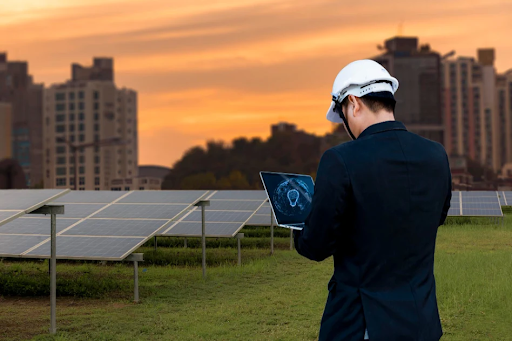
As Indian cities expand vertically, high-rise buildings present an attractive opportunity for solar power generation. However, installing solar plants on tall structures comes with unique engineering and regulatory challenges. Addressing these effectively requires technical expertise, meticulous planning and a compliance-driven approach.
Structural Load-Bearing and Wind Loads
High-rise rooftops are often limited in their ability to take additional loads. Engineers must carefully assess the structural load-bearing capacity before installation. Equally important is accounting for wind loads at higher altitudes, where gusts exert far greater pressure on solar modules and mounting structures. Proper structural design and certified mounting systems ensure both safety and durability.
Fire Safety and Electrical Compliance
Fire safety is paramount in tall buildings. All wiring, junction boxes and protection devices must comply with fire safety codes and electrical standards. Using flame-retardant cables, ensuring proper isolation, and integrating fire detection systems reduce risk and ensure compliance with high-rise safety norms.
Shadow Analysis and Space Constraints
Tall buildings in dense urban clusters often cast shadows on their own rooftops, impacting solar generation. Conducting detailed shadow analysis and optimising module placement is essential to maximise output. Space constraints may also limit capacity, requiring innovative layouts such as elevated structures or hybrid rooftop–facade solutions.
Cable Routing, Earthing and Lightning Protection
Cable routing in high-rises can be complex, with long vertical runs from rooftop to meter room. Proper conduit planning, minimising transmission losses, and ensuring robust earthing are vital. Lightning protection systems must be integrated with the solar plant to safeguard both equipment and the building.
Regulatory Requirements
Compliance with statutory approvals can be as challenging as the engineering itself. Clearances from the Ministry of Environment and Forests (MOEF), municipal authorities, and building departments are often required. Additionally, approvals from DISCOMs for net-metering policies must be secured to ensure seamless grid connectivity. A seasoned Solar EPC company in Mumbai is well-versed in navigating these regulatory requirements efficiently.
Maintenance Challenges
Operation and maintenance (O&M) on high-rise rooftops present accessibility and safety concerns. Regular cleaning of panels, particularly in coastal or dusty environments, requires specialised equipment and strict adherence to safety protocols. A structured O&M plan ensures long-term performance without compromising worker safety.
Best Practices for Design, Execution and Compliance
The most successful high-rise solar projects are those that integrate engineering precision with regulatory compliance from the outset. Partnering with experienced solar EPC companies in Mumbai ensures robust design, seamless execution and adherence to all statutory norms. Comprehensive Solar EPC services cover every stage—from feasibility study to approvals, commissioning and ongoing maintenance—delivering reliable and compliant solar energy solutions.
High-rise solar installations demand more than just technology; they require foresight, planning and professional execution. For building owners and developers, choosing the right Solar EPC company in Mumbai can make all the difference between a challenging project and a benchmark success. Enquire today at +91 8976951701, +91 98199 07445, 022 43436655, 022 43117133 or email marketing@vemc.co.in.

